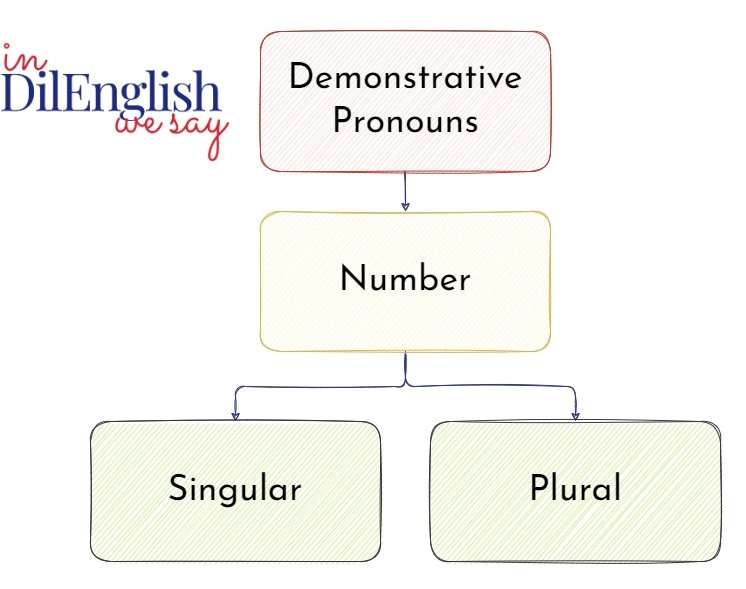The demonstrative pronouns are this, that, such, (the) same.

The demonstrative pronouns this and that have two numbers.
| Singular | Plural | |
| Near | This | These |
| Far | These | Those |
This is used to point at what is nearer in time or space; that points at what is farther away in time or space.
He looked him over critically. “Yes, this boy might do,” he thought. (Dreiser)
“I like that fellow,” Henry Waterman confided to his brother the moment Frank had gone with instructions to report the following morning. (Dreiser)
This and that may be applied both to persons and things.
And this girl was French, not likely to lose her head, or accept any unlegalized position. (Galsworthy)
Other people were anxious to get this soap at this price. (Dreiser)
What do you think of that Belgian fellow, Profond? (Galsworthy)
To Forsyte imagination that house was now a sort of Chinese pill-box… (Galsworthy)
The pronoun such.
She wore a red ribbon in her hair, and was the only one of the white company who could boast of such a pronounced adornment. (Hardy)
The pronoun same is always used with the definite article.
The driver was a young man… wearing a dandy cap, drab jacket, breeches of the same hue. (Hardy)
Function
The demonstrative pronouns this and that are used as subjects, predicative, objects, and attributes.
It’s all right, but I’d rather try my hand at brokerage, I think that appeals to me. (Dreiser) (SUBJECT)
The only honest people — if they existed — were those who said: “This is foul brutality…” (Aldington) (PREDICATIVE)
Tell me just how you did this. (Dreiser) (OBJECT)
“If that young fellow wanted a place, I’d give it to him,” he thought. (Dreiser) (ATTRIBUTE)
The demonstrative pronoun that (those) may be used as a word-substitute:
But in thinking of his remaining guest, an expression like that of a cat who is just going to purr stole over his (Swithin’s) old face. (Galsworthy)
The features (of young Jolyon) were certainly those of a Forsyte, but the expression was more the introspective look of a student or philosopher. (Galsworthy)
The pronoun such is used as a subject, predicative, object, and attribute:
If any living man can manage this horse I can — I won’t say any living man can do it — but if such has the power, I am here. (Hardy) (SUBJECT)
Her idolatry of this man was such that she herself almost feared it to be ill- omened. (Hardy) (PREDICATIVE)
But such thoughts and visions did not prevent him from following Professor Caldwell closely. (London) (ATTRIBUTE)
The pronoun (the) same usually performs the function of an attribute, but it may be used as subject, predicative, object:
We were in the same classes. (London) (ATTRIBUTE)
It is to be feared the same could not be said of you, were you to be called hence. (Ch. Bronte)(SUBJECT)
Martin’s Sunday was the same as before. (London) (PREDICATIVE)
“May this young man do the same!” said Angel fervently. (Hardy) (OBJECT)
